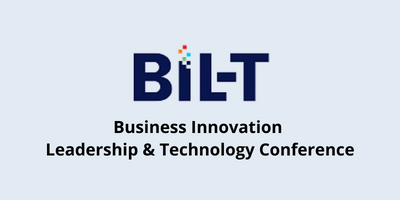We know how to deliver technology and business projects.  Success rates quoted in industry vary from 50 to 75% when measured by the ‘big three’; time, cost and requirements. And while we bemoan those statistics regularly they are really quite high. Marketing campaigns, sales campaigns and other programs are much less sure bets. And yet, the modern project is by a large seen and described as a failure, at least in technology related activities. And the reason is simple, project timelines and cost, while useful measures for productivity, are the single worst way to know if a project succeeds. Why? The reason is in the definition of success.
Success rates quoted in industry vary from 50 to 75% when measured by the ‘big three’; time, cost and requirements. And while we bemoan those statistics regularly they are really quite high. Marketing campaigns, sales campaigns and other programs are much less sure bets. And yet, the modern project is by a large seen and described as a failure, at least in technology related activities. And the reason is simple, project timelines and cost, while useful measures for productivity, are the single worst way to know if a project succeeds. Why? The reason is in the definition of success.
Imagine a marketing campaign. The budget is set at a million dollars. Imagine too that you are the owner of the company and it is YOUR million dollars. The marketing team selects an ad vendor, schedules the project, and executes. You see the early drafts and everyone agrees it is a great ad. Attractive, motivating, going to be a huge win. You are not an ad specialist so you reluctantly agree. The ad is finished on time and magically the total comes out to 999,000, so you SAVED money. It goes live, right in between re-runs of Seinfeld, which is watched religiously by your products perfect demographic. And the next day everyone comes in, expecting the ‘phones’ to be ringing off the hook. And yet they are silent. You are getting the same call volume as before. You wait for 2 weeks and the ad runs it’s course. No change in lead volumes. Of course you have already seen where this is leading. Was the project a success? Are you glad you spent that money? Of course not. Instead you are incensed and fire your marketing person. And yet the ‘project’ was on time, under budget and ‘met requirements’. That is except the most critical requirement – that it actually drives market value. This is the primary failure of the IT project today. We measure our performance on productivity concerns instead of business concerns.
A project is a relatively simple construct which has taken on gigantic proportions in IT. A project is simply a means of changing our current state to some future state using a series of tasks within an allotted timeframe. The project itself is a tool to accomplish a goal and the goal is almost never about completing the project. I do admit that certain compliance projects are time sensitive as well as certain time to market projects. But effectively, someone comes up with an idea which should accomplish a business goal. Whether the goal (performance driven) or the idea (innovation driven) comes first does not necessarily matter as long as they both end up measurable. For example, someone important says let’s get more customers for our product, anyone got any ideas? A bunch of people submit ideas, sometimes in a format called a business case. The company picks the business cases they like and fund them. That’s it. That is the extent of the project. And yet…
The single most important measures in technology happen after it is launched. Did it make customers happier? Did they buy more products? Do our sales people actually sell more? Did we increase ANY relevant customer focused initiative?
Now some of you are thinking that is great but what about reuse? What about cost savings? I can tell you as a CEO myself that those are important to me, but they are NOT what I am measured on. I expect all of my staff to save money and work efficiently. I spend money on training, operating efficiency measures and tools, and other items to ensure that they have the capability to do it, but in staff meetings with directs it is hardly the most important topic. CxOs care about growth within the confines of their mission and vision statement according to the desires laid down by the owners, whether those owners are individuals, shareholders, members or citizens. Growth in measurable business accomplishment is the single largest motivating force for any executive. And yet technologist insist on talking about the least sexy measures in business.
Ask yourself this: If you were to measure today all of the projects that your company deployed 12 mo ago, which ones are returning the ROI laid out in the business case? Or was their even a business case to begin with? What if your CEO decided to pay you only on commission? How much would you earn then?
It is time that architects and technology leadership begin asking the really tough questions of themselves and their vendors. Is what we are doing actually helping us to succeed as a company? And how can we prove it? Only then can projects be called a success.







